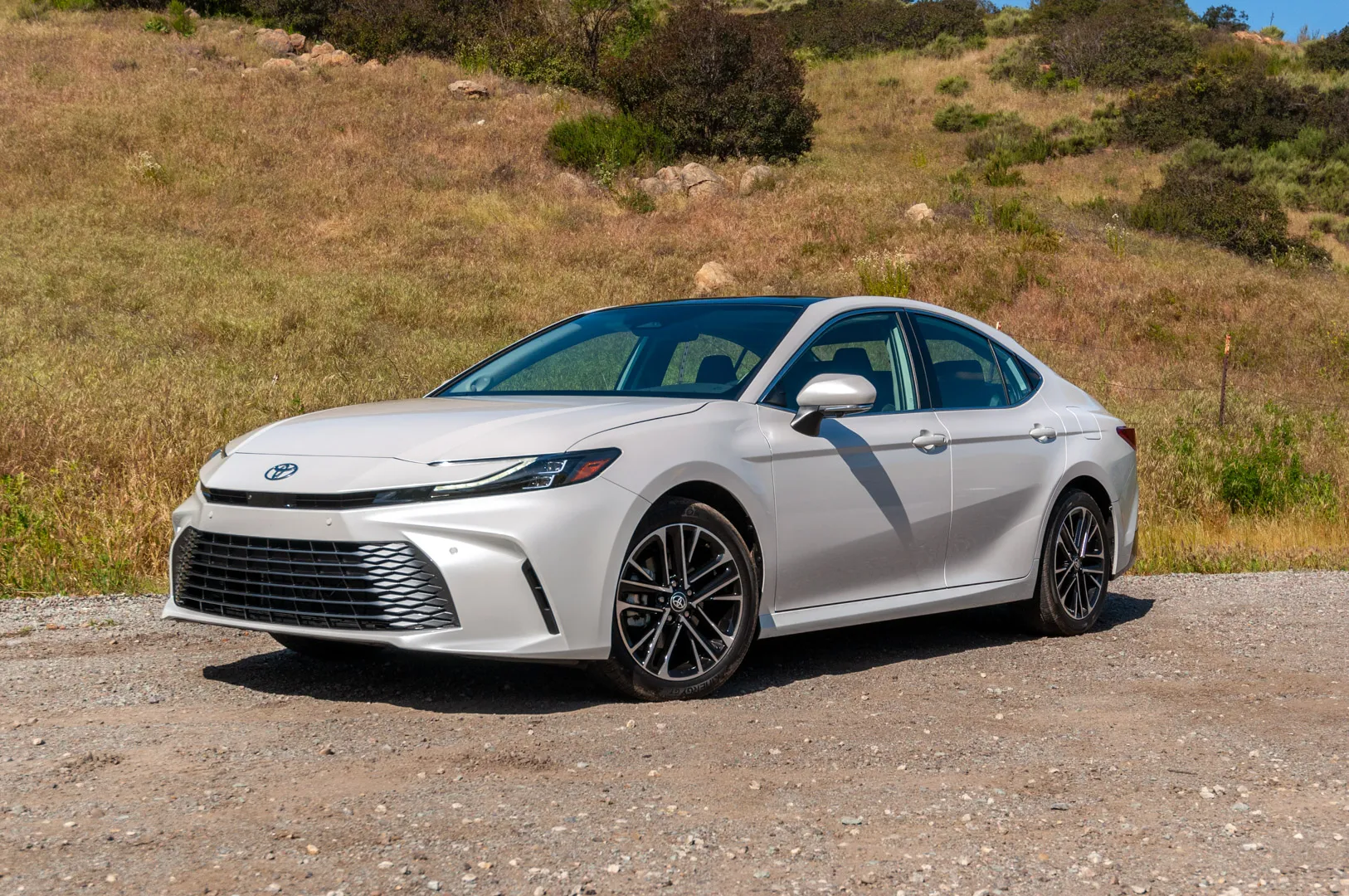Toyota just doubled down on hybrids, again.
As the automaker marches towards electrifying its entire lineup, the updated 2025 Camry model line going hybrid tells the tale of Toyota’s current strategy: potent (enough), practical, efficient, and cost-conscious. These are the defining traits of the 2025 Camry lineup.
After spending a brief amount of time behind the wheel of a base LE model and sportier XSE trim, it’s clear the Camry probably isn’t in danger of losing its place as the best selling car in the U.S. anytime soon. This is despite the fact the Koreans, both Hyundai and Kia, have just refreshed their midsize offerings, the Sonata and K5.
Here’s what I noted, and what we look forward to further testing in the real world with more time behind the wheel.
2025 Toyota Camry
2025 Toyota Camry delivers smooth moves
The V-6 is dead. The Camry was the holdout, and it’s no longer standing on that hill.
Every 2025 Camry has a 2.5-liter inline-4 rated at 184 hp. The gasoline engine pairs with Toyota’s fifth-gen version of the planetary-gear-configured hybrid system dubbed THS 5. It employs two electric motors and nets 225 hp sent to the front wheels. Toyota offers a third motor mounted on the rear axle for all-wheel drive and it can be optioned on every single trim for $1,525. All-wheel-drive models increase net system output to 232 hp.
Both the more comfort-oriented LE model and sportier XSE model driven delivered similar power, with some of the best electric power handoffs in the business. Toyota nailed the blending of the two power sources. The Camry never induced judders, jerkiness, or even disturbances of any kind to occupants. While down on power compared to the outgoing V-6 model, the hybrid’s electric motor makes its torque immediately off the line giving the Camry enough to scoot away from a stop sign.
On the highway the hybrid powertrain doesn’t seem to run out of ideas when it comes time to pass another car going 70 mph, but this is no Lucid Air Sapphire either. Don’t plan on racing anything other than a Corolla for pink slips.
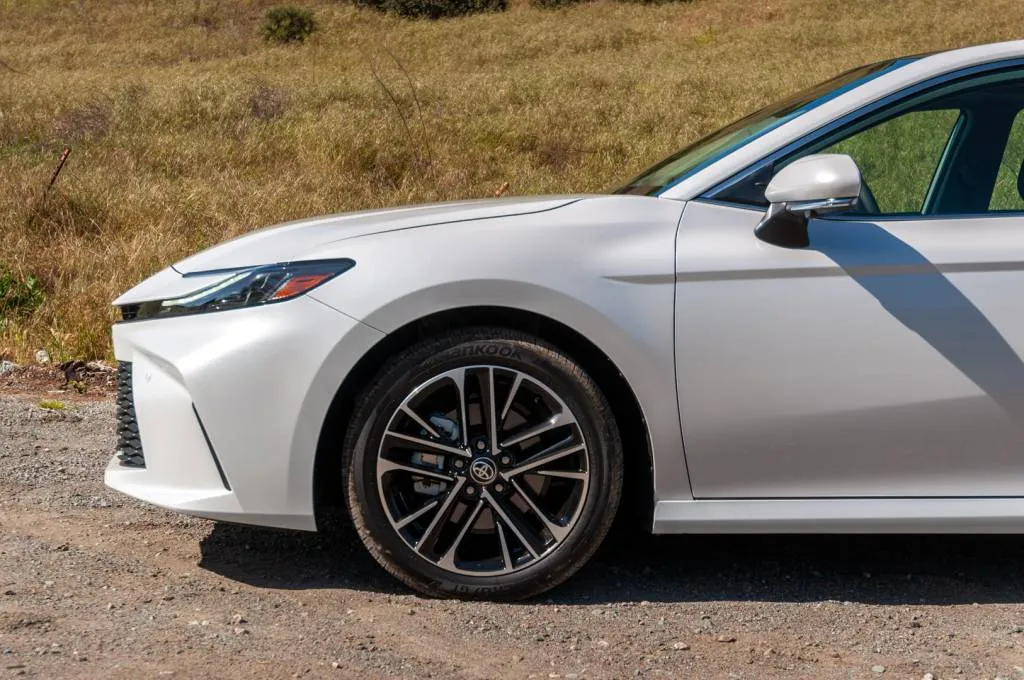
2025 Toyota Camry
The steering is well weighted and the Camry tracked smoothly down the California highway. I was surprised, and delighted, as the expectation of overboosted light steering simply wasn’t met. Feedback from the steering is a stretch—this is a Camry after all, not a Supra—but it didn’t feel completely detached from the road.
The base LE’s softer suspension and 16-inch alloy wheels provided a comfortable, bordering on plush ride that was controlled. The XSE with its sportier tuning and 19-inch wheels rode noticeably firmer with more road seams and bumps transmitted into the cabin, but even the sportier trims are compliant and comfortable at speed. I’ll have to see how the sportier XSEs ride on broken Midwest pavement.
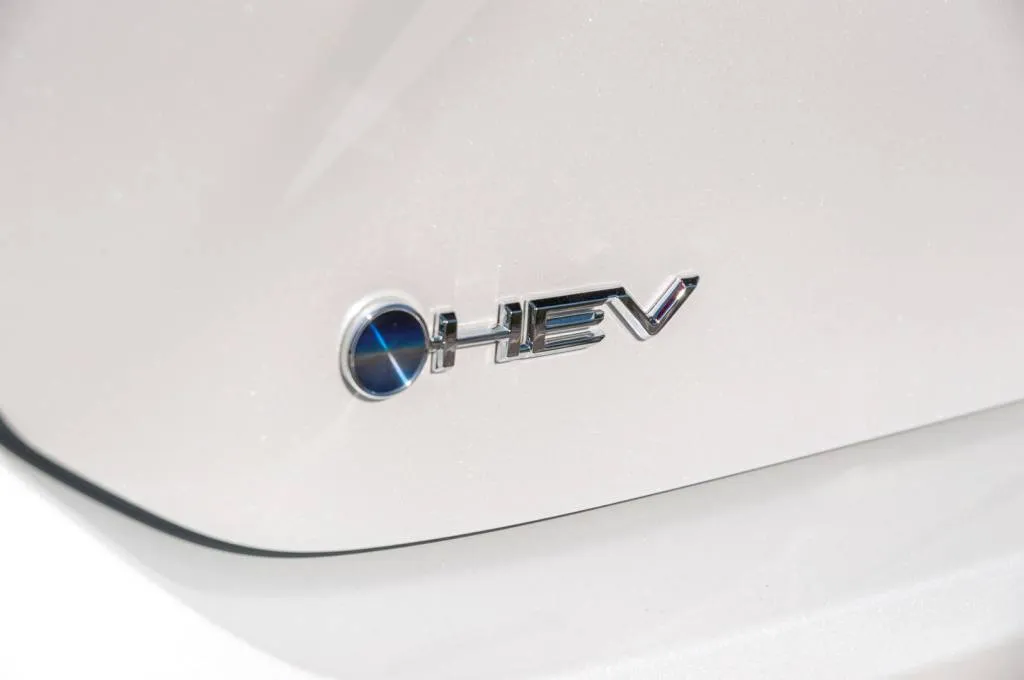
2025 Toyota Camry
2025 Toyota Camry theoretically sips fuel
Toyota said in its most efficient form, which is a front-wheel-drive LE trim, the Camry is expected to have fuel economy ratings of 53 mpg city, 50 highway, 51 combined.
The least efficient Camry trim will be the XSE model with all-wheel drive carrying fuel economy ratings of 44/43/44 mpg. Still efficient.
In our pre-production car that had a mere few hundred miles on it (meaning the engine and seals weren’t even broken in yet) the trip computer indicated an average of 35.3 mpg. The drive route included mixed driving that wasn’t steady-state speeds with lots of elevation change over the course of nearly 50 miles. I look forward to testing a production car that’s been broken in to see what kind of fuel economy it achieves in reality.
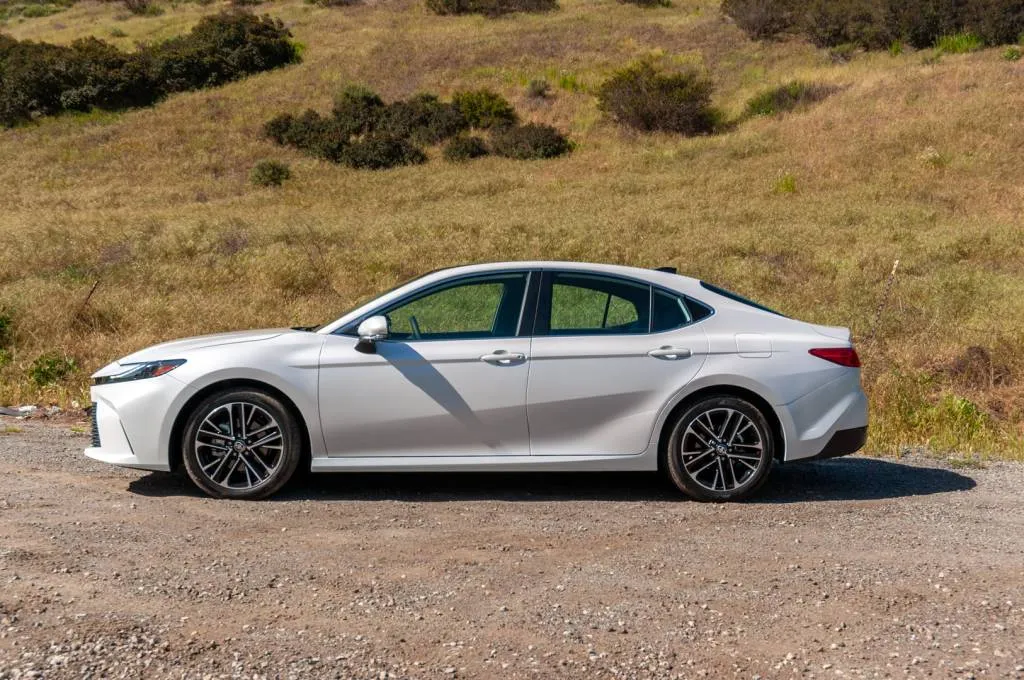
2025 Toyota Camry
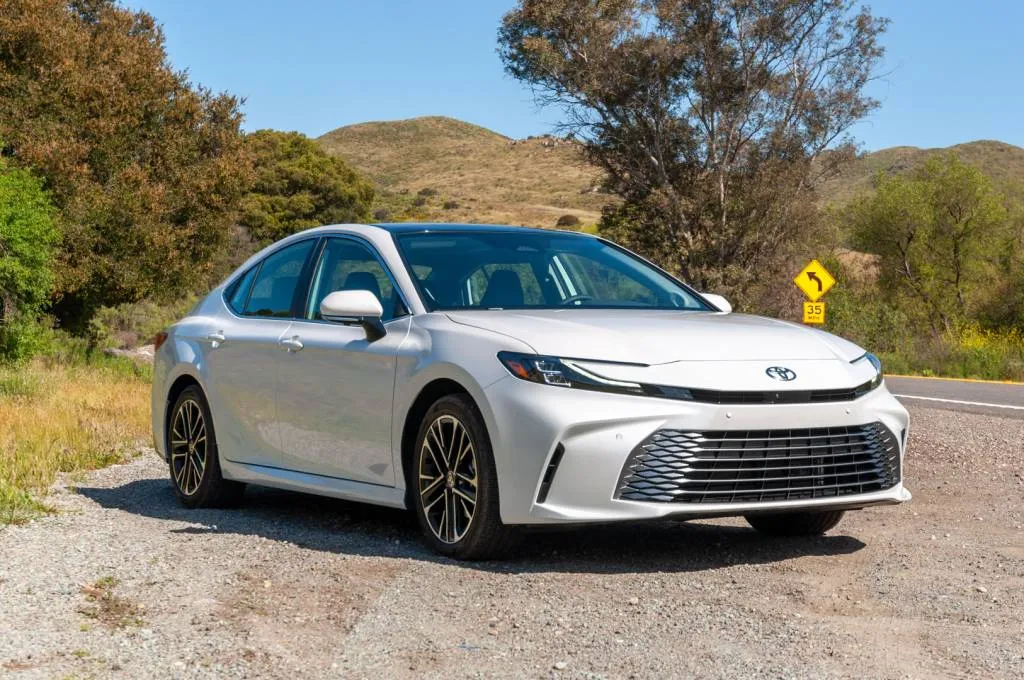
2025 Toyota Camry
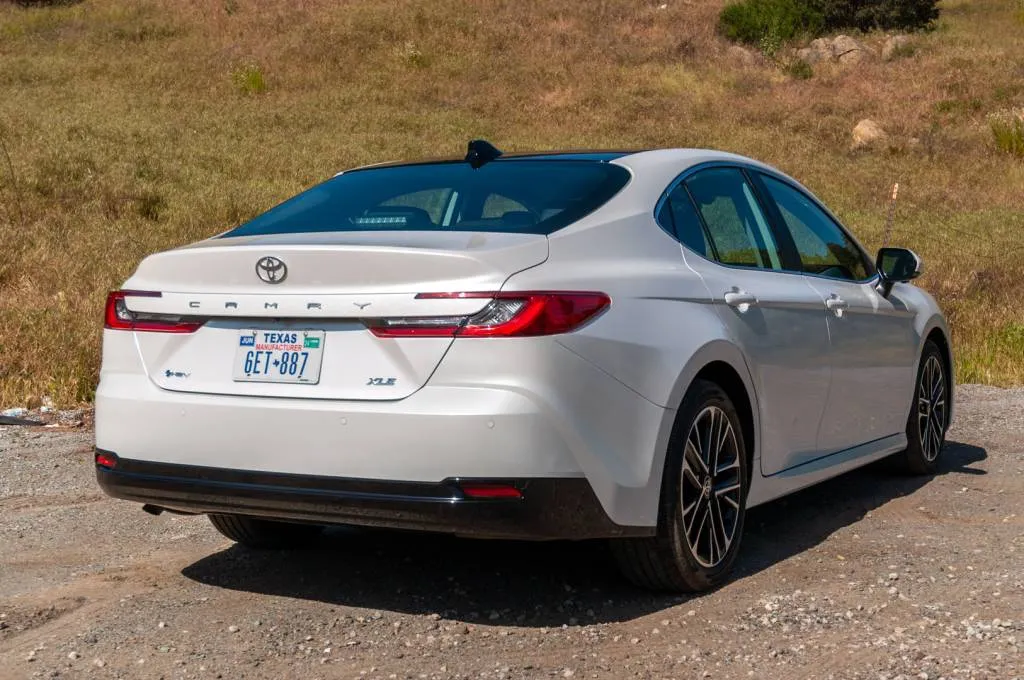
2025 Toyota Camry
2025 Toyota Camry looks the same, but different
It’ll take a real Camry enthusiast, if such a thing exists, to spot the updated 2025 model. Toyota says it’s new, but it’s not. This car rides on the same chassis with the same 111.2-inch wheelbase as before. The hardpoints for the body didn’t move either. The overall length has increased by about 1.4 inches, but that’s due to the new bumper designs. The busy X-wing fighter front end is gone. It’s given way to a simpler, calmer look with a wide lower grille with different inserts for various trims. Out back the wraparound LED taillights could be on any car and the roofline wouldn’t be out of place on a Honda Accords or Hyundai Sonata.
Inside the story continues with a calmer interior. The dashboard still features an asymmetrical design, and there are real buttons and knobs for the climate control and audio system. Thank you, Toyota.
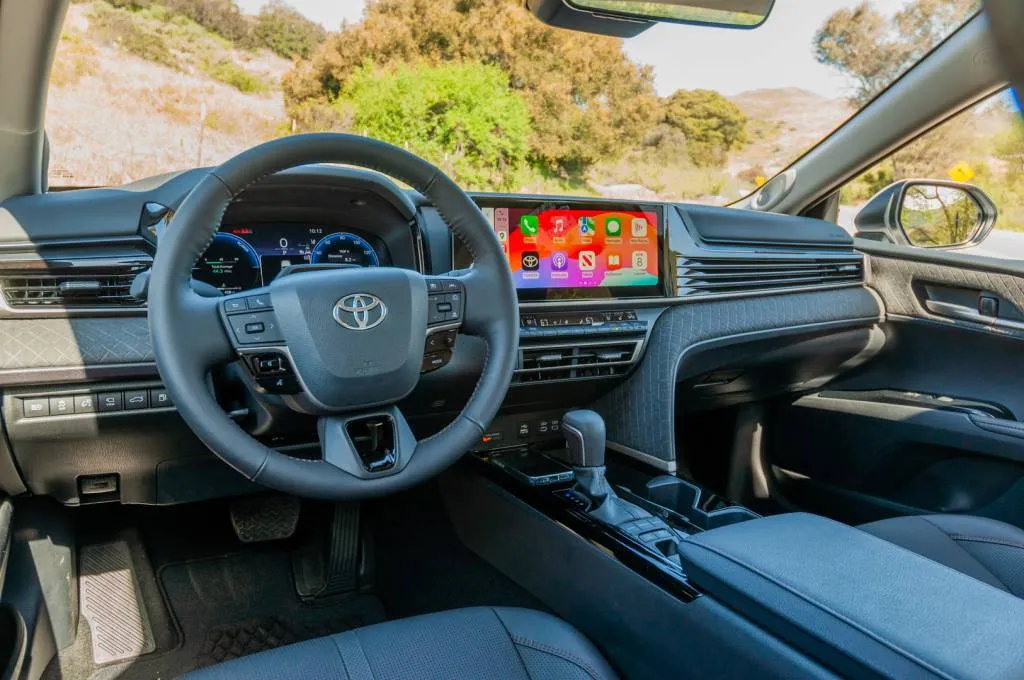
2025 Toyota Camry
Base cars come with a 7.0-inch digital gauge cluster and 8.0-inch touchscreen, but upper trim models feature dual 12.3-inch screens. The touchscreens feature the same interface regardless of the size, and it poses minor issues for both. The smaller 8.0-inch screen doesn’t actually feel like an 8.0-inch screen because Toyota’s interface uses the left side to lock soft buttons on the left rail, which in turn shrinks usable screen real estate. The 12.3-inch touchscreen is too much of one thing because it doesn’t feature split-screen capability. Hope you like a lot of Apple CarPlay or a massive map. Yes, wireless Apple CarPlay and Android Auto are standard.
Base cars feature comfortable cloth seats, which might be the best in the lineup. But the passenger side doesn’t have adjustable lumbar support until you step into higher LE and XLE trims. The rear seat has plenty of knee, foot, and legroom, but headroom’s tight. Those checking in at 6 feet and taller are going to find out what the headliner feels like. The door cutouts aren’t Uber-worthy. The rear seat might be more comfortable than the Accord’s due to independent headrests that aren’t integrated into the seat back, but there’s less legroom, the door opening’s smaller, and it’s harder to get in and out of. Though, I felt like I wasn’t sitting as low in the rear seat of the Camry as I do in the Accord.
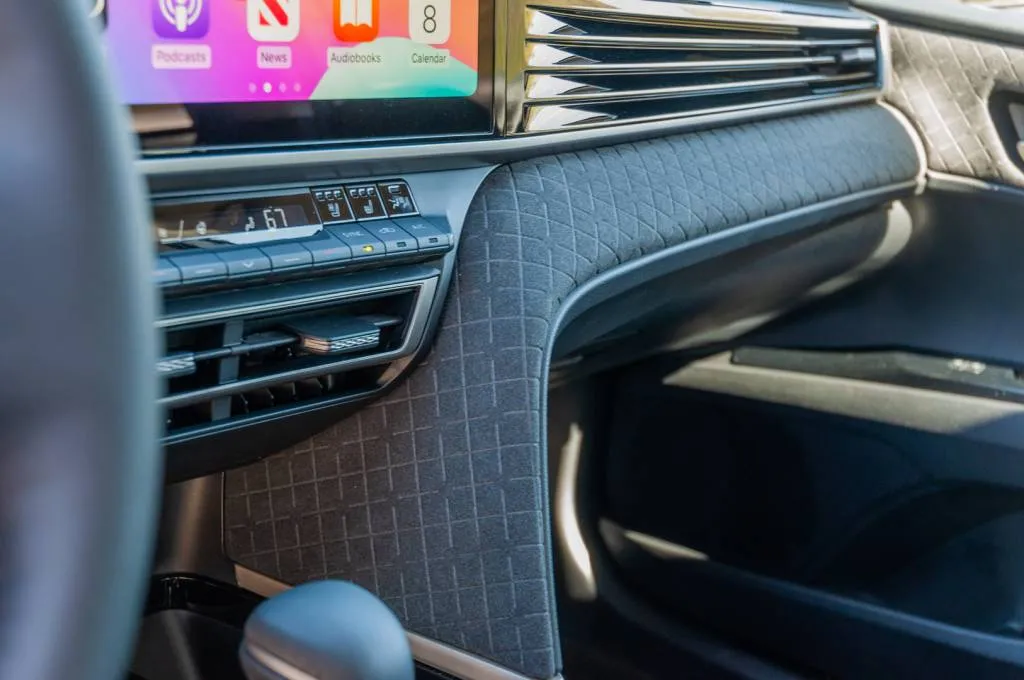
2025 Toyota Camry
Every LE and XLE Camry features some sort of cloth trim on the dashboard and door panels, lower trim cars feature something more akin to linen while upper trim models feature something that feels like suede trimming the dashboard and doors. The sportier XSE model I drove ditched the cloth trim on the doors and dashboard in favor of red synthetic leather trim. It was bright. Upper trim models feature soft door uppers, but hard plastic on the rear doors. Base cars stick with the hard plastic all around. Every Camry, unfortunately, features shiny piano black trim on the dashboard surrounding the touchscreen that then bleeds towards the passenger door. The plastic is wavy and looks cheap, especially in the sun. At least it’s not on the center console where it would get scratched.
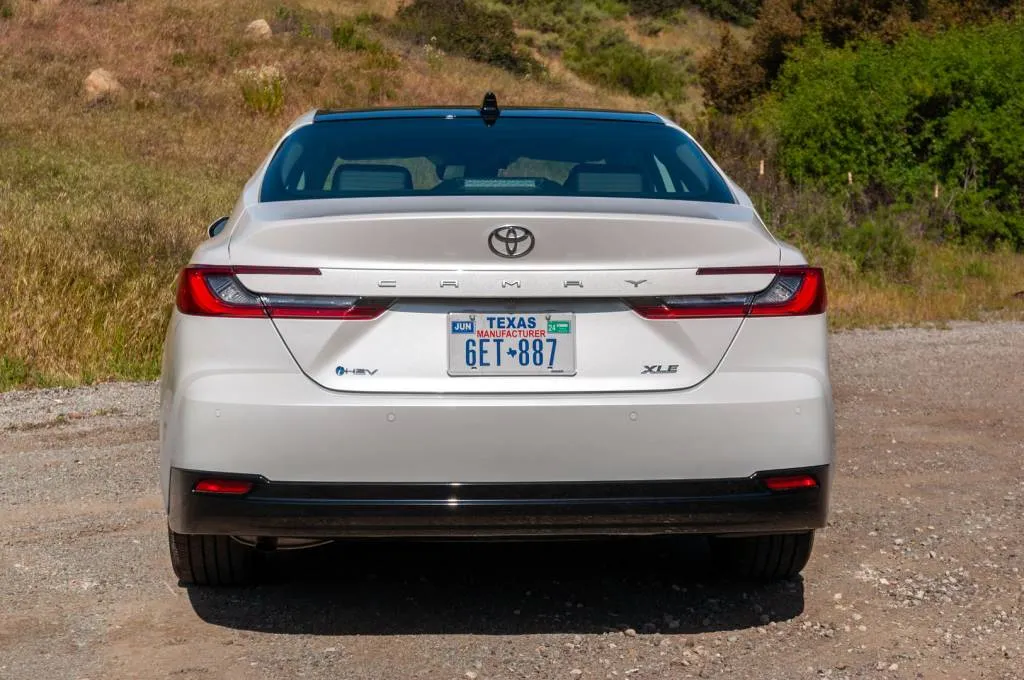
2025 Toyota Camry
2025 Toyota Camry checks the value box
The base 2025 Camry LE with front-wheel drive costs $29,495 including a $1,095 destination charge. That flies about $16,000 less than the average new vehicle transaction price. It’s an outright deal. Adding all-wheel drive only tacks on another $1,525 for sure-footed driving in foul weather conditions. A full-tilt sporty XSE with all-wheel drive will cost $37,220.
Apples to apples, the Camry undercuts the latest Hyundai Sonata by $2,455 while having more horsepower and better fuel economy under some tests.
It’s not exciting; it’s not fun to drive; but the 2025 Camry lineup, which is all hybrid, now presents comfortable, inoffensive transportation that sips fuel. And you can get it with all-wheel drive to boot. It seems at first blush that if shopping for value and efficiency the Camry just leapfrogged to the front of the segment.
—
Toyota paid for travel costs so that we could bring you this test drive review.
Read the full article here



